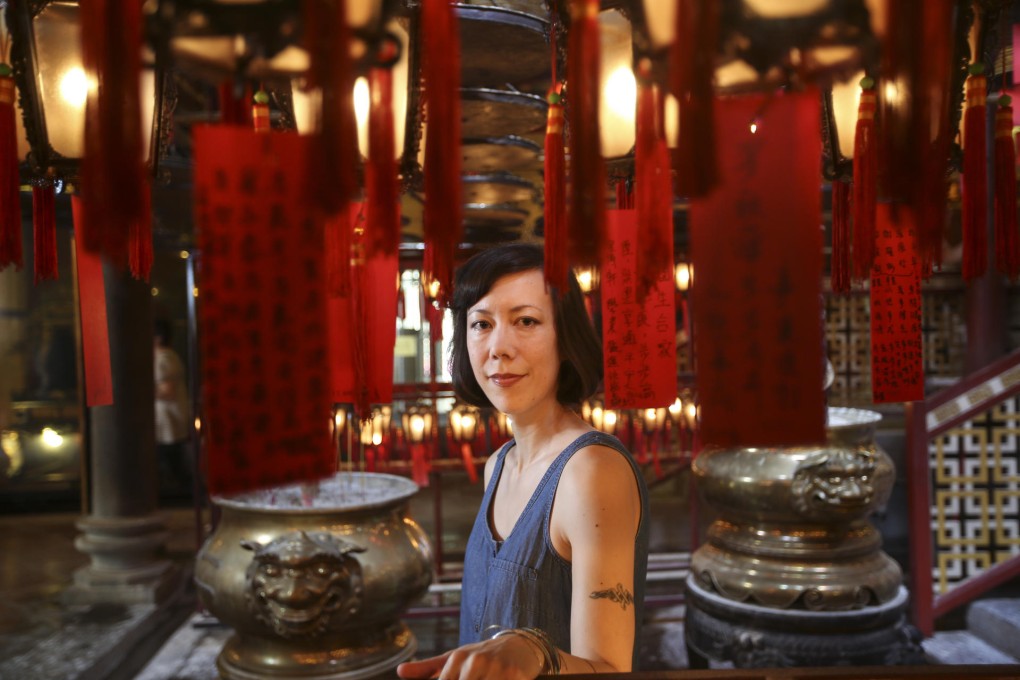Continental drifter: novelist Susan Barker opens up about her nomadic lifestyle
With her third book, The Incarnations, just out, Susan Barker talks to Fionnuala McHugh about setting her novel in Beijing and her never-ending travels

Susan Barker has written three books. The first, Sayonara Bar, which was published in 2005, is set in Japan. It has three storylines that are all connected to a hostess bar in Osaka. Her second one, The Orientalist and the Ghost, published in 2008, is a three-generation tale that starts off in 1950s Malaya before proceeding to the 1969 riots in what had, by then, become Malaysia, while dipping in and out of contemporary east London.
Her third book, which was published last week (and is reviewed in today's Review section), is called The Incarnations. It's set in 2008, Olympic-era Beijing but includes events and characters from five other historical periods: the Tang dynasty (in 632), the Jin dynasty (in 1213), the Ming dynasty (in 1542), the Qing dynasty (in 1836) and the Cultural Revolution (in 1966).
The first book was written after Barker spent two years teaching in Japan. The second was partly born out of her background: her mother is Malaysian-Chinese. For her third book, she moved in 2007 to Beijing, where, like its plot, her life became complicated.
As part of the novel's pre-publicity, her publisher's PR e-mailed a blog piece Barker had recently written entitled "Six dramatic, nomadic years with a half-finished manuscript in my head". It began: "During the six years I spent writing my novel The Incarnations, I lived in seven cities in four countries. I moved in and out of 17 different houses and flats in Beijing, Seoul, Colorado, Boston, Leeds, Washington DC, London and Shenzhen." The last line was: "So, this year, as thoughts turn to ideas for a new book, I also intend to expend some mental energy on making plans for the future too: to choosing a place to settle down, and to putting the years of drifting nostalgically in the past."
When this interview was first suggested, at the end of May, Barker was living in Shenzhen. I'd hoped to meet her there but she was packing up her things and, by early June, she was in Beijing again. (In 2009, she moved five times within the capital.) She then flew down to Hong Kong for a couple of days, in mid-June, to renew her visa and we finally arrange to meet. A couple of times, during our subsequent conversation, she mentions that she'll find out, in a few hours, whether she'll be able to return to Beijing. The travel agents have warned her that visa rejections are currently on the high-ish side and it seems likely that she'll have to change her plans - but she's impressively sanguine.
"I've done it so many times," she says, philosophically. "It's always like this."
We meet in Starbucks, next to the Hotel Ibis in Sheung Wan, where she's staying. It seems possible that she'll arrive trailing mountains of luggage but she's unencumbered - a slender woman of 36, in a sleeveless dress, with a small handbag, a tattoo on her left arm and, initially, an air of reserve. She hasn't done many interviews and here's the proof: she offers to buy her own coffee. She also doesn't trot out pre-prepared spiel. I am quite struck by the gap between blogger and Barker. You get the impression that the references in that blog-piece - to pet-sitting a fluffy white cat called Mr Cookiepants in Washington, for example - plus its cinema-trailer title ("Six dramatic, nomadic years …") are part of her polished, re-drafted writing world, not her real world. Or at least a real world that involves being interviewed.